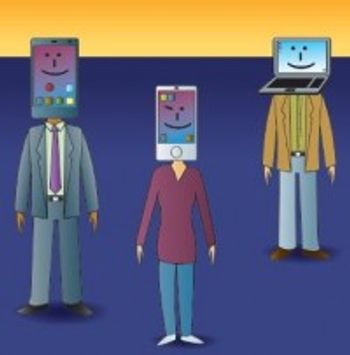
Do our fears prevent us from embracing a reverence of life -- all life -- as Dr. Albert Schweitzer advocated a century ago?

Do our fears prevent us from embracing a reverence of life -- all life -- as Dr. Albert Schweitzer advocated a century ago?

Have you heard of Psychiatrists for Environmental Action and Knowledge (PEAK)? There are ways for us to help treat climate instability and global overheating!

In the USA, we have drive-thru food, pharmacies, and banks. And now we have drive-thru viewing at funeral homes.

The news today is good for our mental health. More Americans have health insurance. One survey shows a drop in the numbers of those who've experienced serious psychological stress in the past 30 days.

"Go inward, so that you can go onward, and then upward." Here: two things that can help keep us happy.

Here's a fascinating study of consumer attitudes towards doctors among patients receiving antidepressants. The conclusions help us understand what goes wrong in the doctor-patient relationship and suggest steps needed to fix it.

Instead of a military search and destroy mission, this psychiatrist proposes a psychological search and revive mission.

What can we-the public and professionals-try to do to prevent suicide, ranging from our individual relationships to international relationships?

Racism in basketball . . . domestic violence in football. Does sports cause more psychological damage than benefits?

It should be clear that racism remains a major problem in the US-in sports, psychiatry, mental health treatment, and elsewhere.

The son of convicted Ponzi schemer Bernard Madoff died this week. As Andrew Madoff's death indicates, you don't stop being a father when your children are adults.

In fighting Ebola in West Africa, healthcare givers have knowingly put their own lives at risk. If that isn't following the medical ethics principle of putting the patient first, what is?

If there is an action that is further from sitting next to someone and trying to understand the psychology of their brain, it is standing next to someone and preparing to behead them.

People feel free to post comments on social media sites that they would never dare say to someone’s face. The cure, if only a partial one, is to get out of social media and to start living a real life. What is your opinion on this issue?

If we didn't so stigmatize the severely mentally ill, we would feel an urgent responsibility to rescue them immediately from prison and homelessness.

The “story behind the story” is not the over-prescription of antidepressants-though it happens-but the under-availability of optimal treatment.

Imagine an end to psychiatric episodes that threaten job and family, no more hospitalizations, and a chance for a long life not cut short by mental illness and its complications. What can we take away from the HIV/AIDS story for the treatment of mental illness?

A mother recalls seeing a donation box with a photo of a little boy with leukemia in a grocery store checkout line but never one of a child with serious mental illness. How can this be if twice as many children and young people die from suicide than those who die of all cancers combined? More in this commentary.

This exchange follows what began with Dr Richard Noll’s article, “Speak, Memory” and the “repressed recovered memory/multiple personality disorder” iatrogenic epidemic of the late 1980s and 1990s.

Are patients with schizophrenia better off without antipsychotics? Here: a point/counterpoint.

While we still have our good mornings-whether in Vietnam or elsewhere-we must forever say good night to Robin Williams and to thank him for all the good times.

The institutions of yesterday were overcrowded, noisy, and often had a distinctive odor. Patients were neglected and mistreated. Yet those problems have been replaced with a different set. More in this commentary.

It is essential that we psychiatrists align ourselves with the public and our patients both to disseminate accurate information and to educate. Social media allows us to have this public voice more than ever before.

What psychological factors may lurk beneath endorsement of or opposition to the death penalty? This author speculates.

In psychiatry, we do not complete physical exams; much of our diagnosis is born out of our observations, interviews, and conversations. Other medical fields, particularly surgery, require manual, technical, and motor skills. In this manner, psychiatry is unique. More in this commentary.